Publications Search Results
Our Publication Search Results
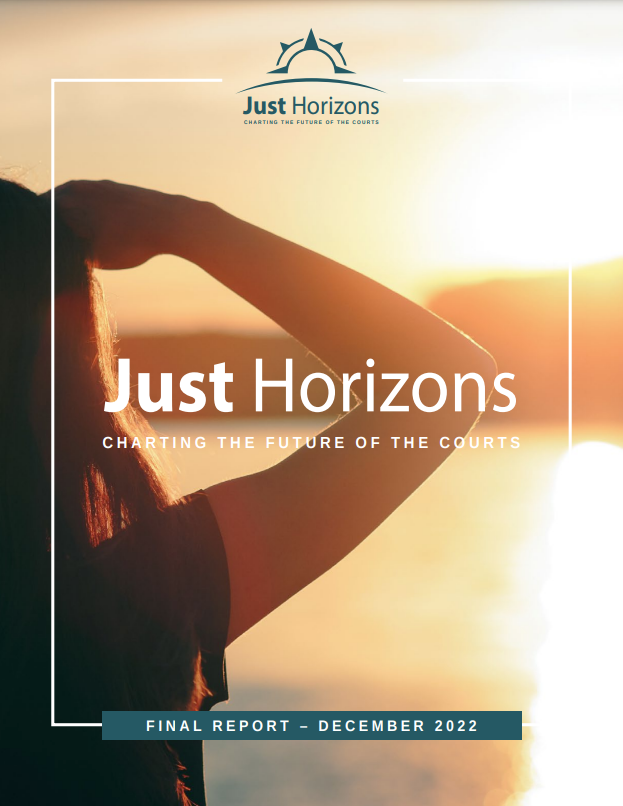
Just Horizons
12/31/22In August 2020, the National Center for State Courts launched the Just
Horizons initiative to explore the changing needs of the judicial system and
those who use it. The initiative was conceived in 2019 in preparation for
the Center’s celebration of its 50th anniversary in 2021. At that time, we had
no idea that the initiative would be launched amid a global pandemic and
intense social and political unrest at home and abroad. These events only
crystallized the importance of our effort to better anticipate and understand
emerging social, technological, and environmental trends that also could
disrupt the meaningful delivery of justice by our nation’s courts.
…
Continued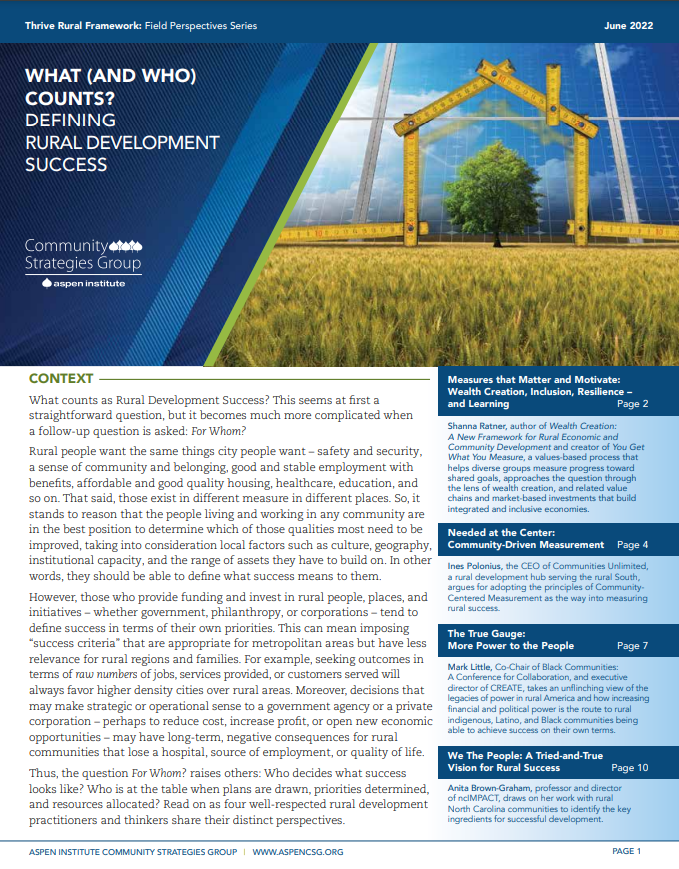
What (and Who) Counts? Defining Rural Development Success
06/06/22There are no easy solutions for the many challenges that rural American faces, but what is clear is that rural communities themselves must drive change and transformation. Aspen Community Strategies Group’s new report, What (and Who) Counts? Defining Rural Success features Anita Brown-Graham and three other well-respected rural development practitioners’ perspectives on how we can better define rural development success.
…
Continued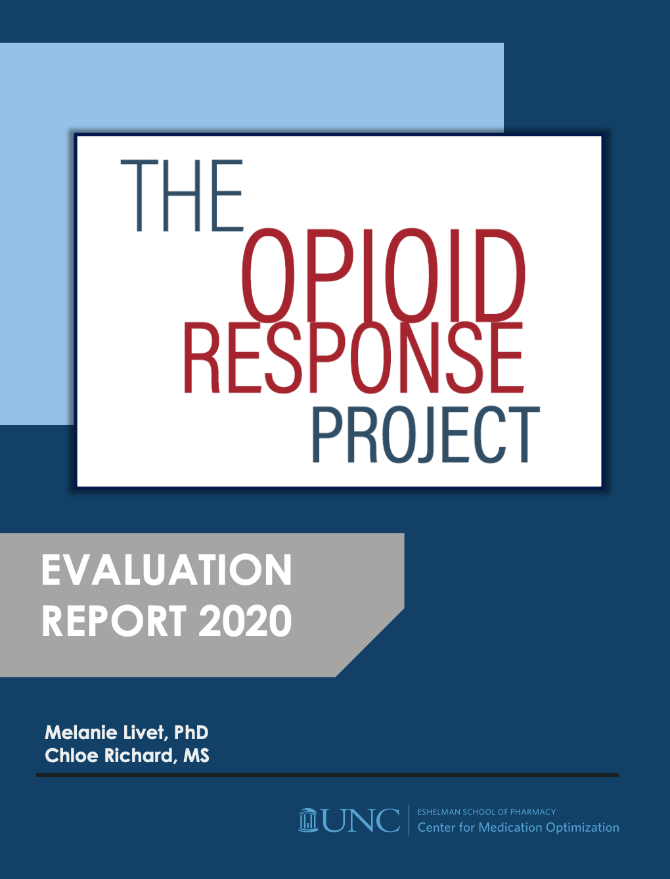
The Opioid Response Project: Evaluation Report 2020
05/31/21“The communities chose to focus on goals surrounding increasing access to and engagement with treatment; decreasing access to opioids and preventing new substance use disorder (SUD) cases; reducing stigma and increasing awareness and knowledge of addiction, opioid use and misuse, impacts of opioid use on the community, and prevention and treatment options; improving health, safety, and recovery in their communities; increasing community collaboration and capacity; and increasing access to funding.”
…
Continued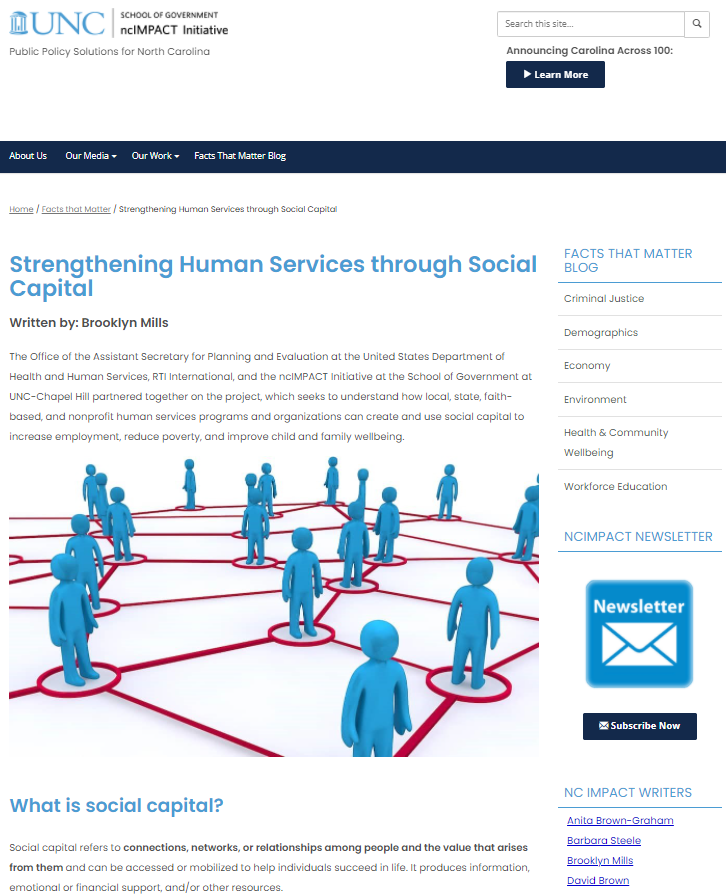
Strengthening Human Services through Social Capital
06/17/20The Office of the Assistant Secretary for Planning and Evaluation at the United States Department of Health and Human Services, RTI International, and the ncIMPACT Initiative at the School of Government at UNC-Chapel Hill partnered together on the project, which seeks to understand how local, state, faith-based, and nonprofit human services programs and organizations can create and use social capital to increase employment, reduce poverty, and improve child and family wellbeing.
…
Continued
Emerging Social Capital Principles and Practices
06/17/20According to our expert advisors, before individual practices are put in place, certain principles – referred to by those involved as ideas, convictions, or values — need to exist in programs first. They should be recognized and used by staff. All aspects of a social capital-based approach rely on these principles.
…
Continued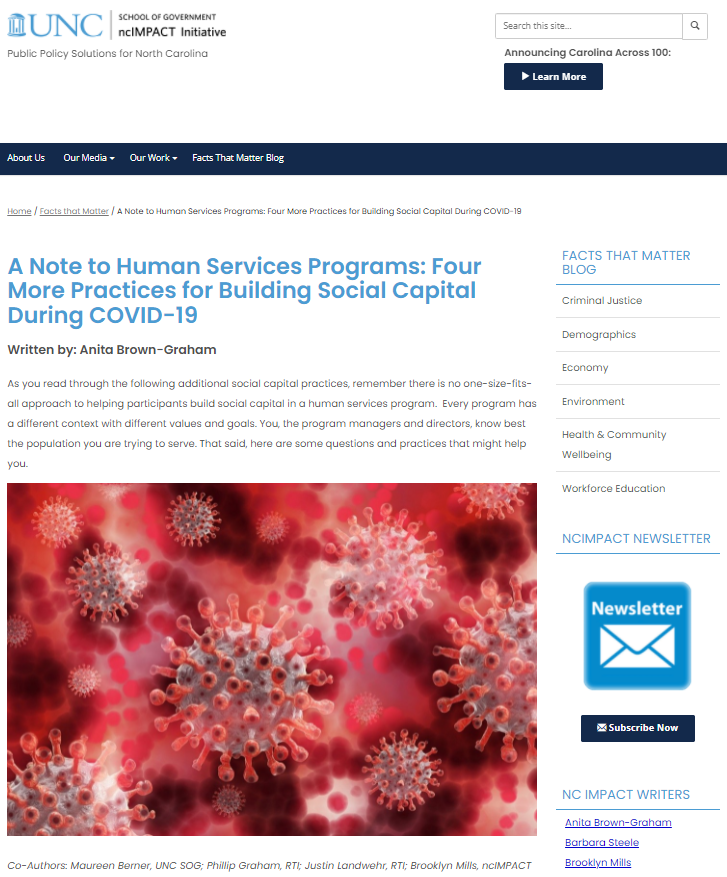
A Note to Human Services Programs: Four More Practices for Building Social Capital During COVID-19
04/01/20As you read through the following additional social capital practices, remember there is no one-size-fits-all approach to helping participants build social capital in a human services program. Every program has a different context with different values and goals. You, the program managers and directors, know best the population you are trying to serve. That said, here are some questions and practices that might help you.
…
Continued
Finding a Better Way: A Case Study on Challenges to Inclusive Economic & Workforce Development
12/01/19“Taken together, these results show that working people are challenged to earn enough to make ends meet. One common way to increase compensation is to increase a worker’s level of education and training, and indeed, among the eight overall categories of needs in our survey, 64 percent of respondents chose “Education and Training” as one of the three most important. It was the most-chosen response, with “Employment Support” the next highest at 46 percent (Figure 3).”
…
Continued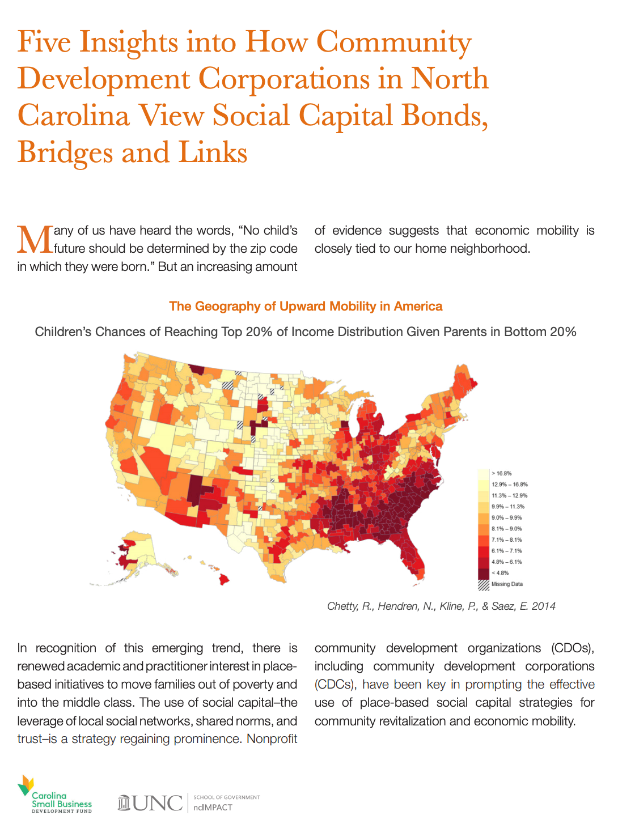
Five Insights into How Community Development Corporations in North Carolina View Social Capital Bonds, Bridges and Links
05/31/19“The use of social capital–the leverage of local social networks, shared norms, and trust–is a strategy regaining prominence. Nonprofit community development organizations (CDOs), including community development corporations (CDCs), have been key in prompting the effective use of place-based social capital strategies for community revitalization and economic mobility”
…
Continued
The Forsyth Story: A Strategy for Creating a More Inclusive Economy
02/01/19“The ncIMPACT team analyzed demographic data, the results of an electronic survey of Forsyth residents and workers, and comments recorded during interviews and focus groups to distill the county’s present challenges to ten overarching themes”
…
Continued
The Current State of Scientific Knowledge on Pre-Kindergarten Effects
06/01/17“While the depiction of the preschool and public pre-kindergarten landscape requires significant explication, one conclusion is clear: Any summary evaluation of the impact of public pre-kindergarten programs on children’s outcomes must recognize that such programs vary greatly across states and are directed to different kinds of children.”
…
Continued
The Current State of Scientific Knowledge on Pre-Kindergarten Effects
05/16/17In this study, NC Pre-K and Smart Start were evaluated across 13 years, following children through age 11 (end of elementary school) in each of North Carolina’s 100 counties. This study has, to date, involved approximately 1 million children. It took advantage of the fact that state funding levels varied across counties and across years. The researchers asked the policymakers’ question: Does the level of state funding allocated for each of these programs to a particular county in a particular year influence the educational outcomes for the children living in those counties and years?
…
Continued